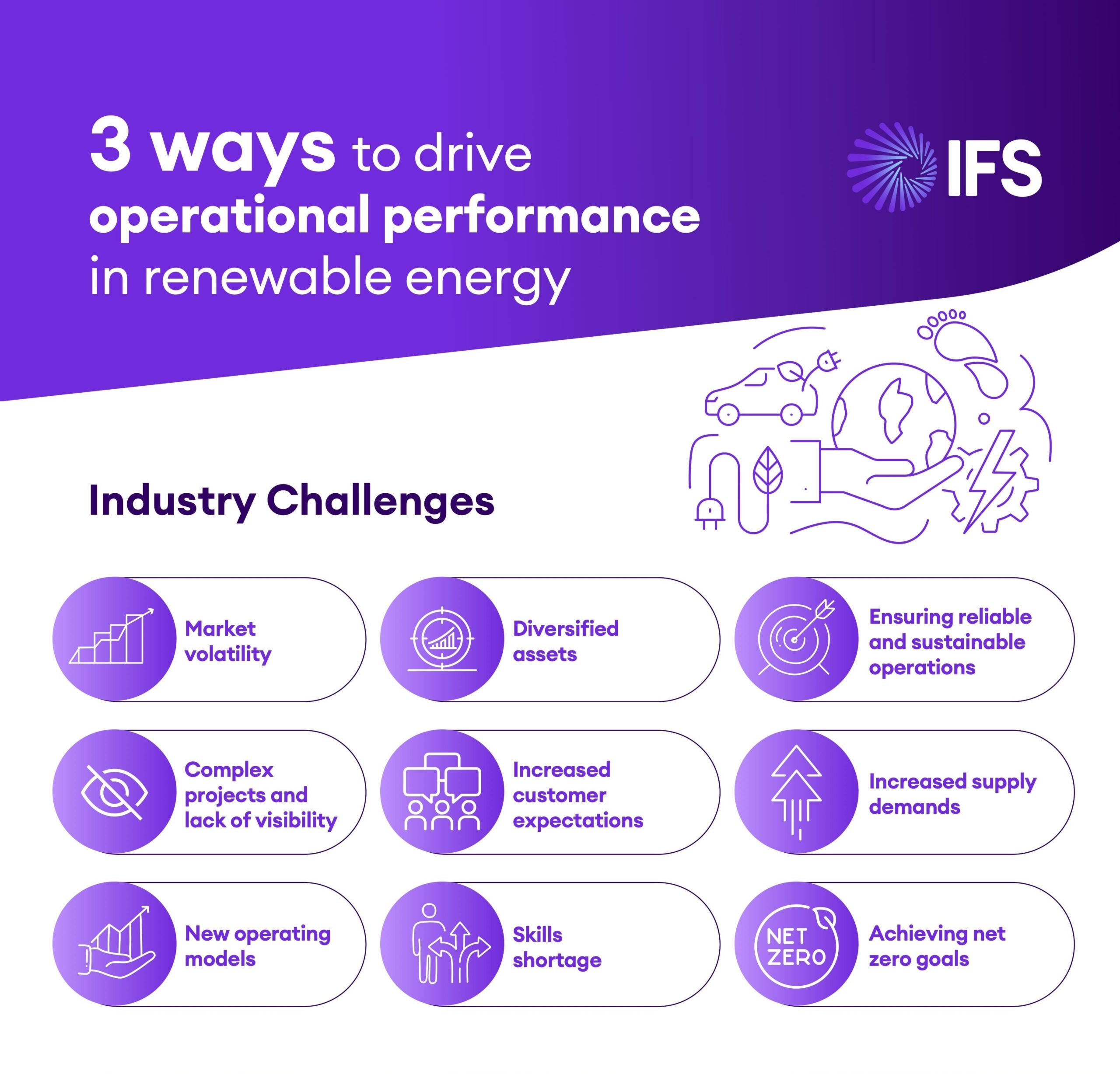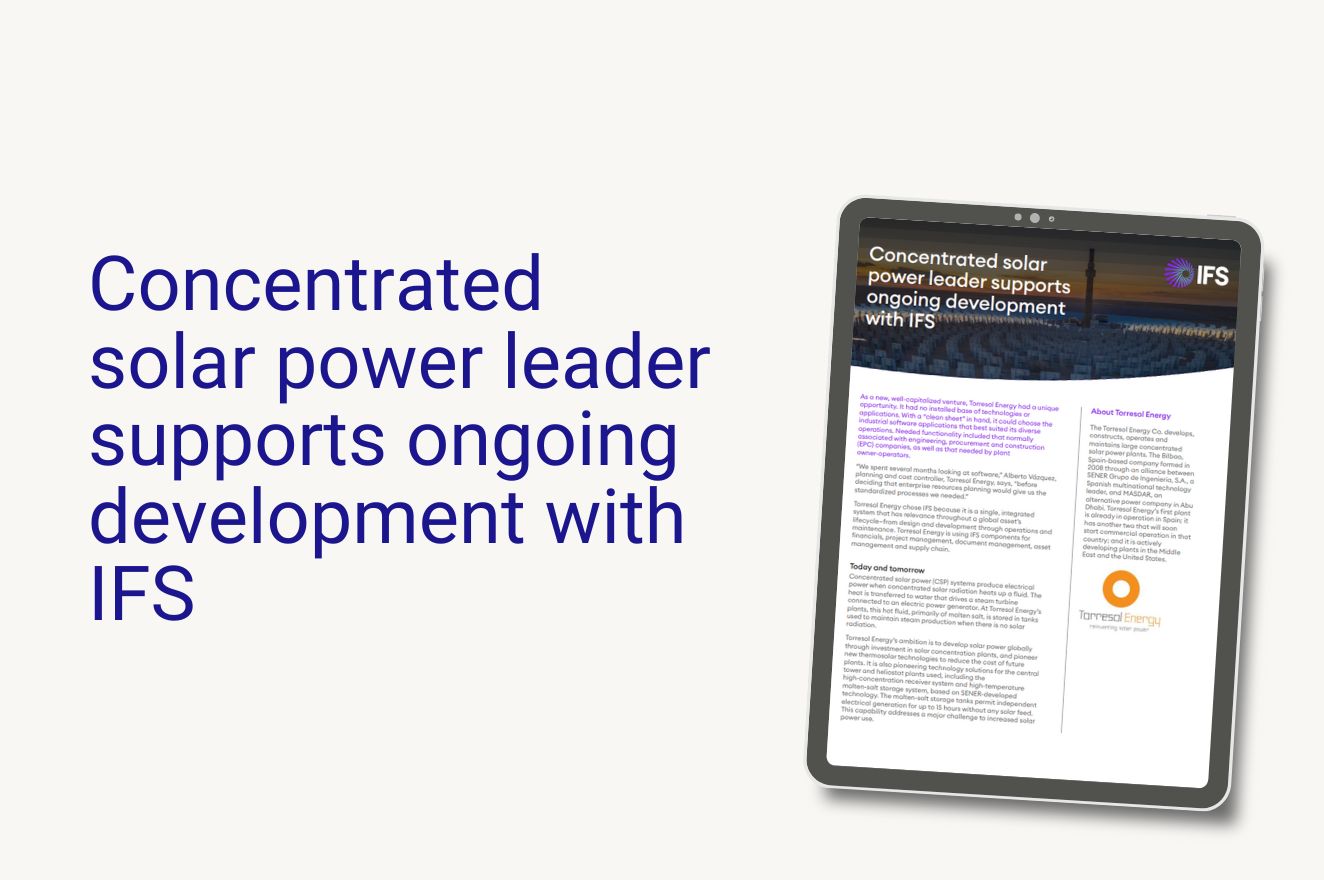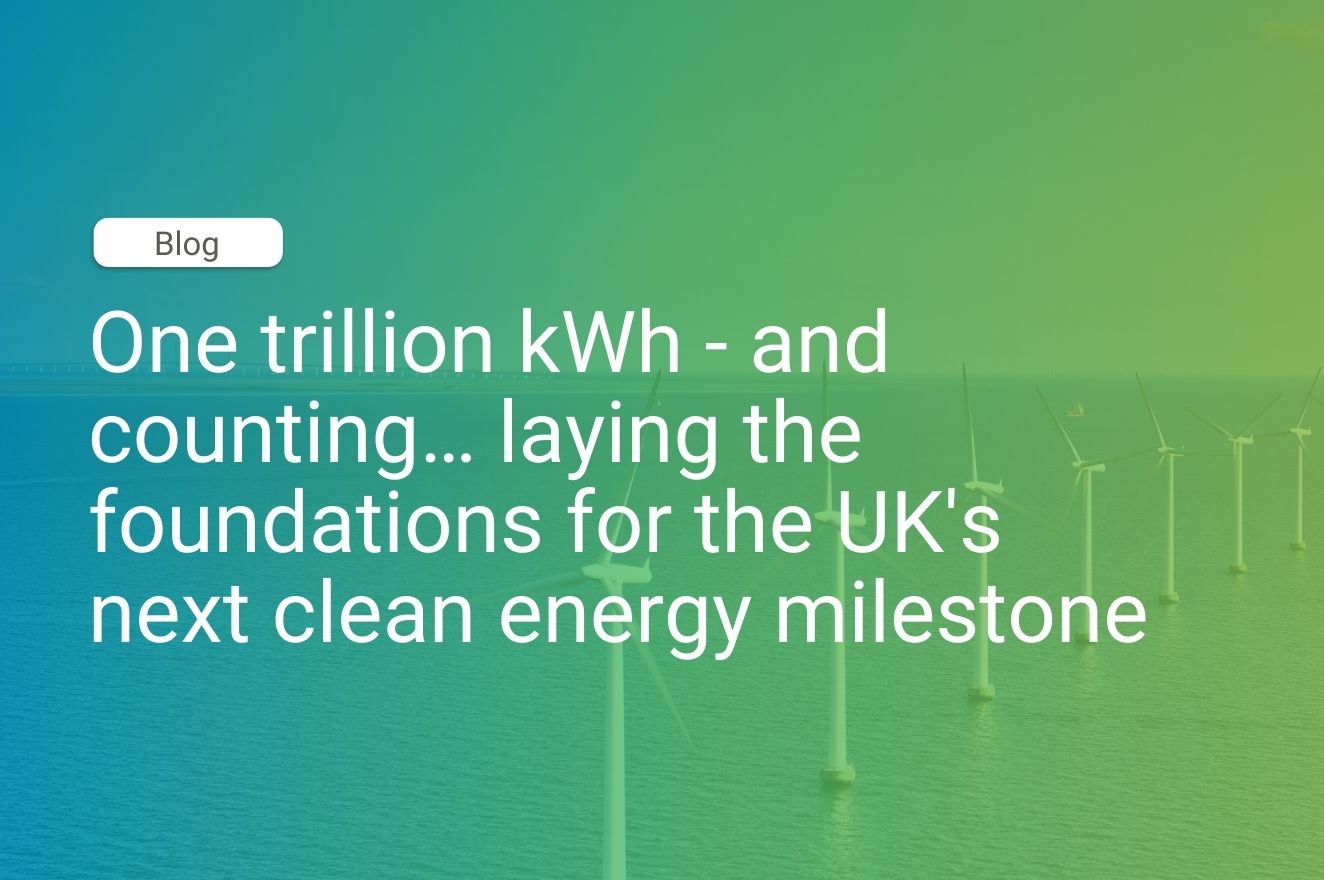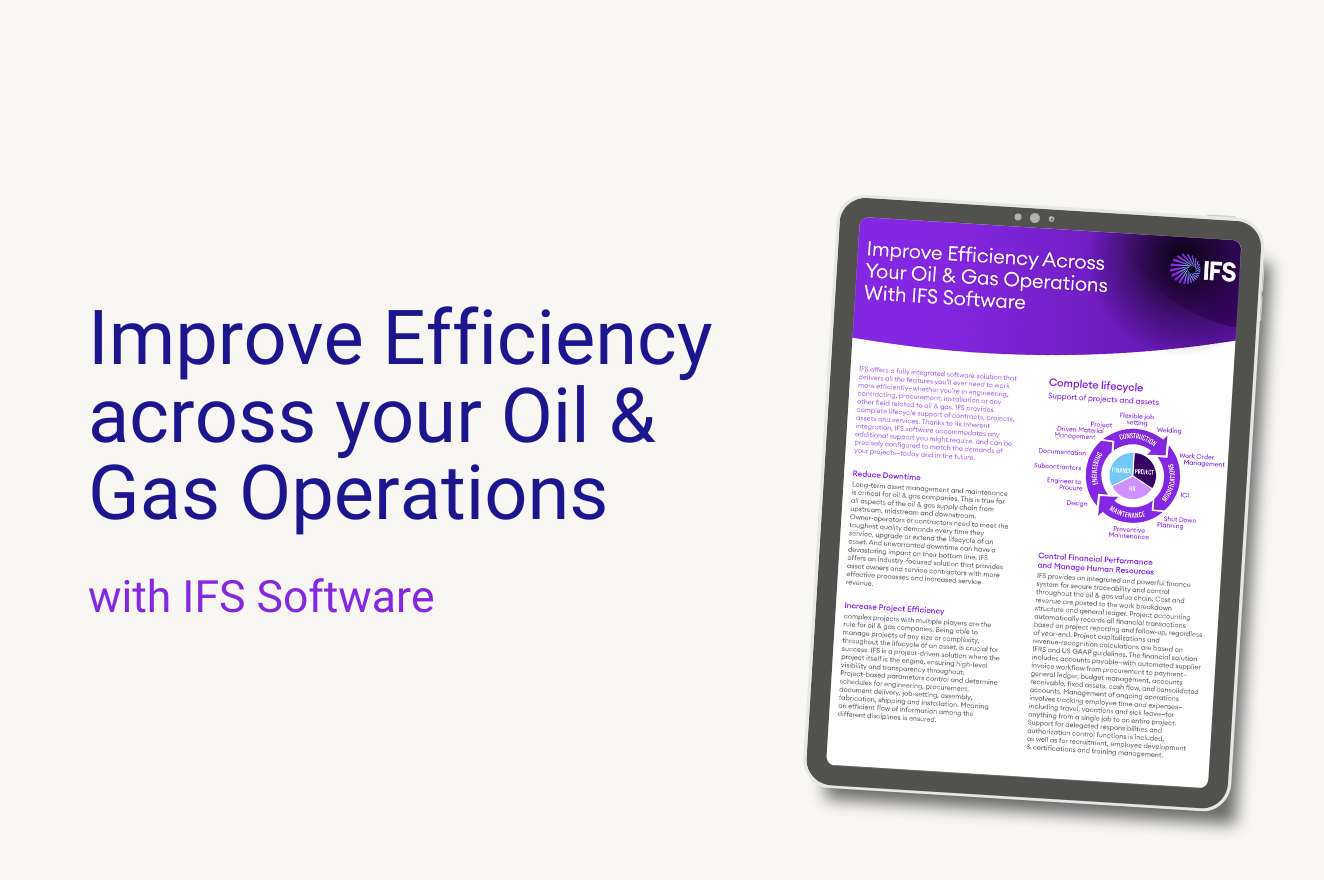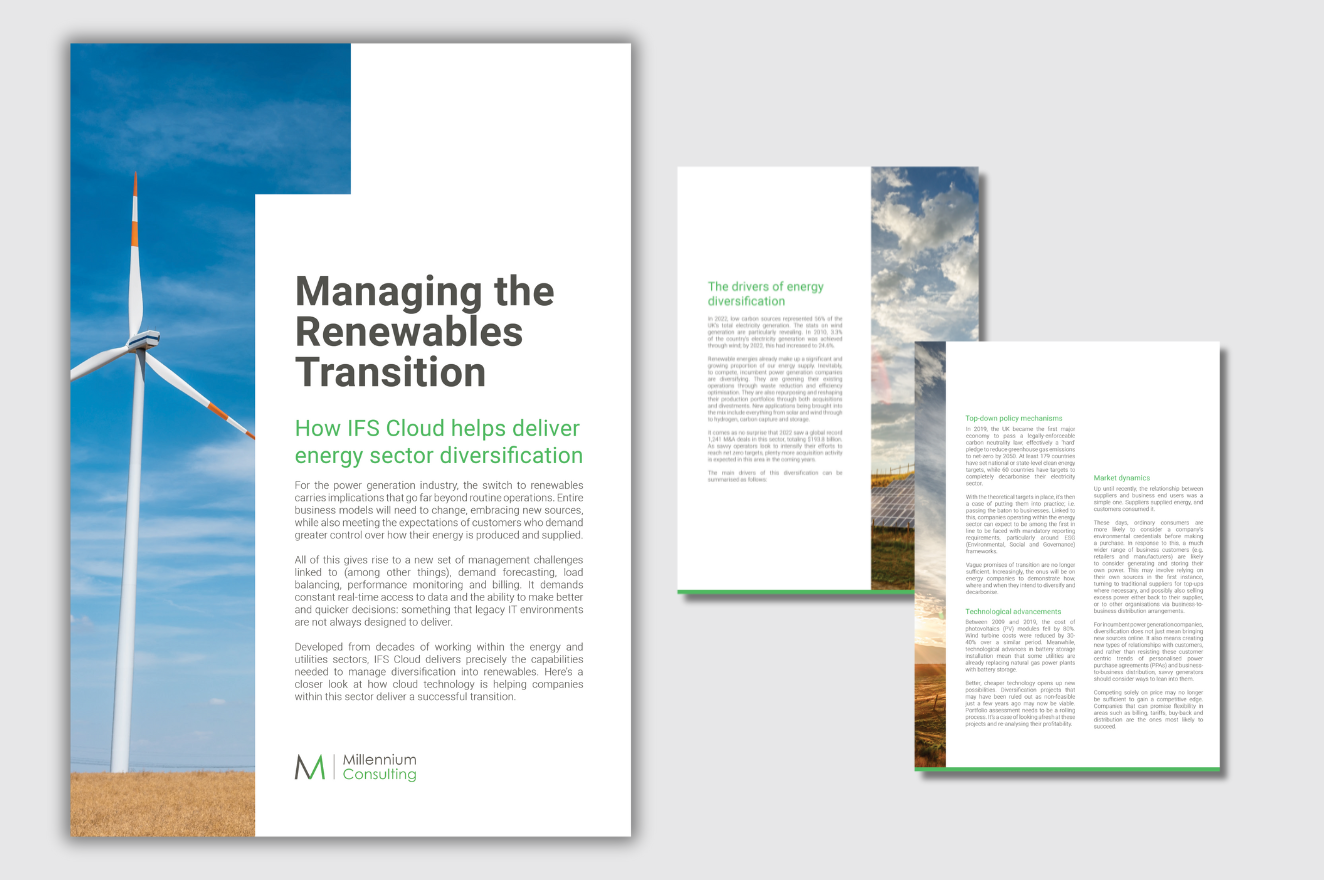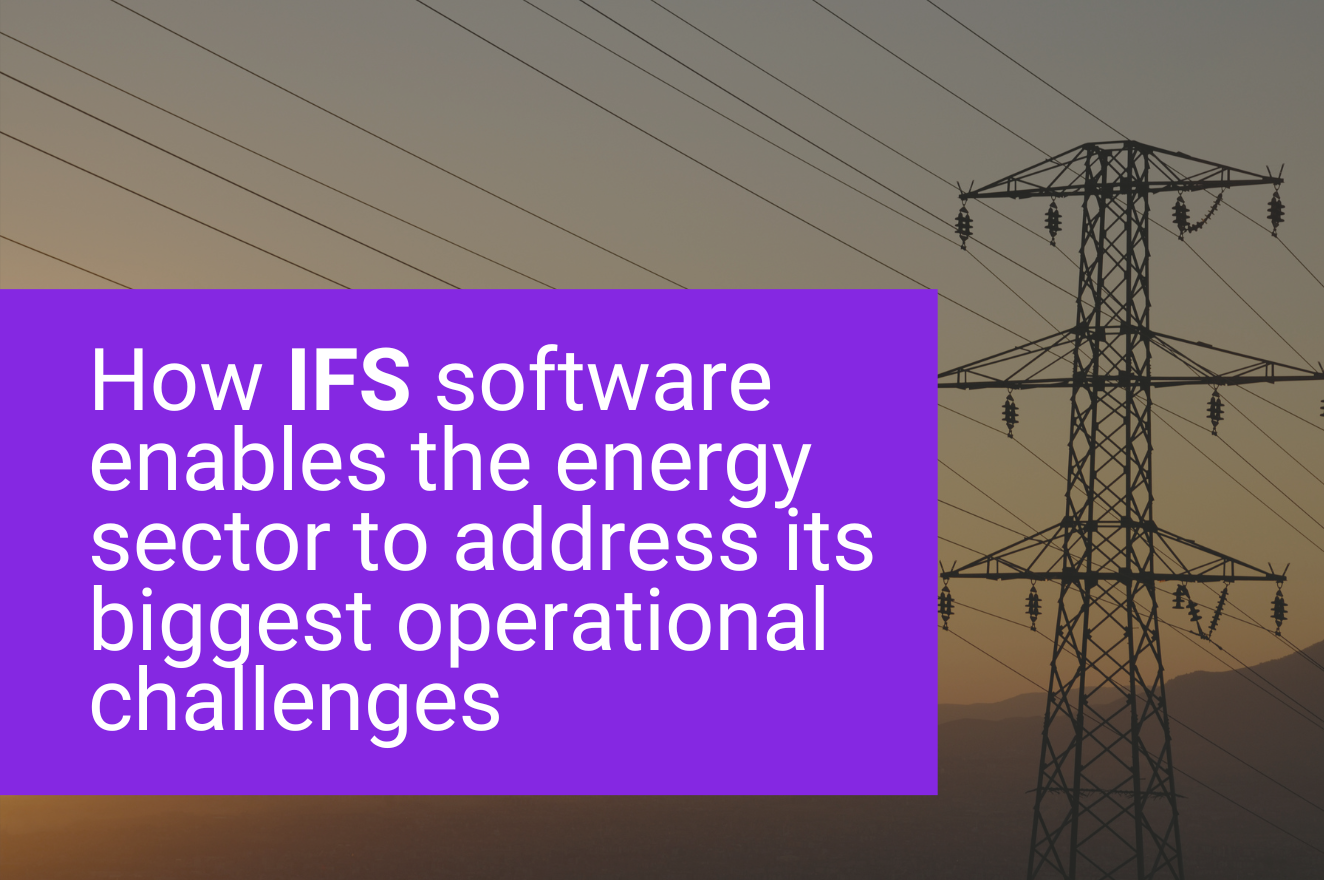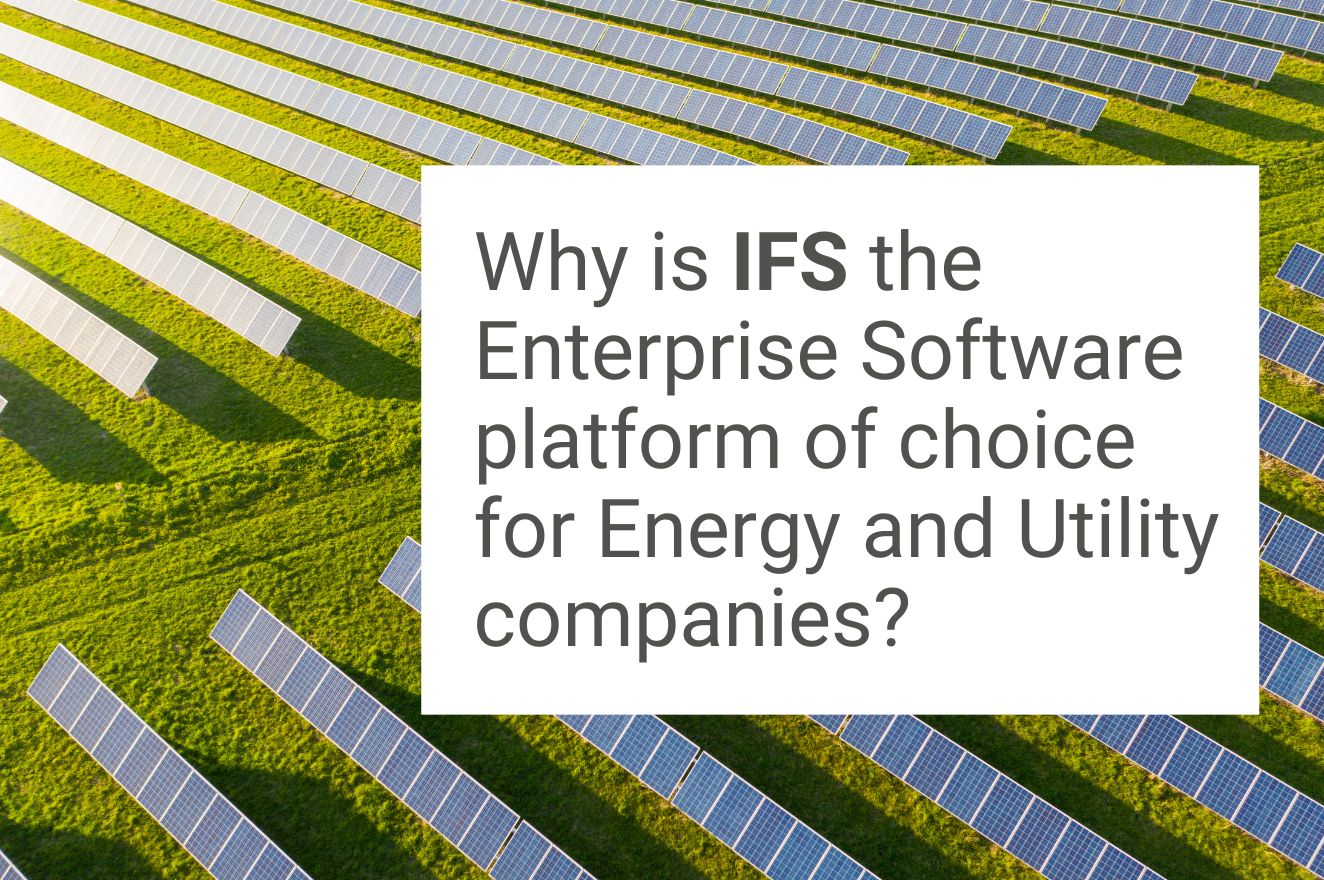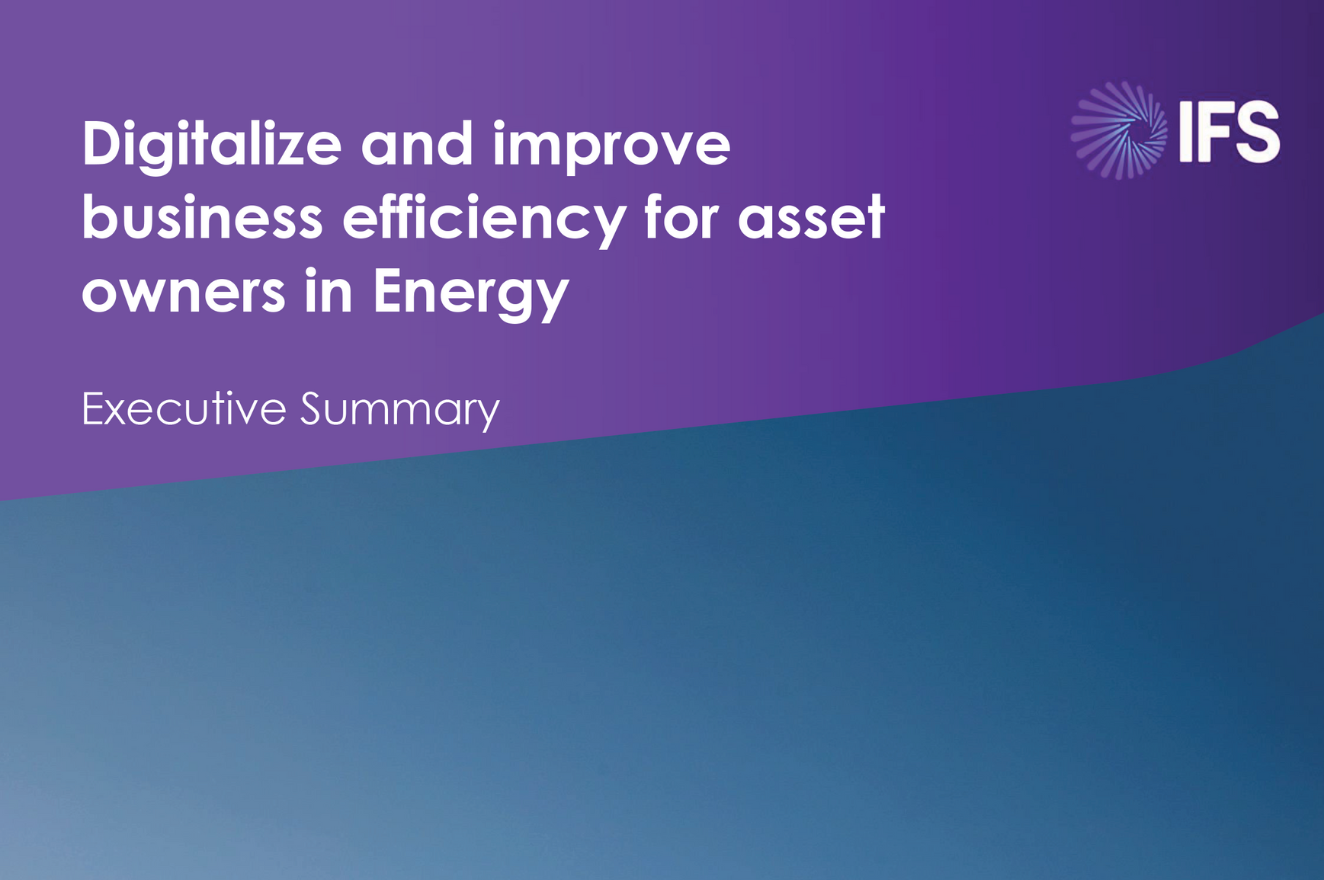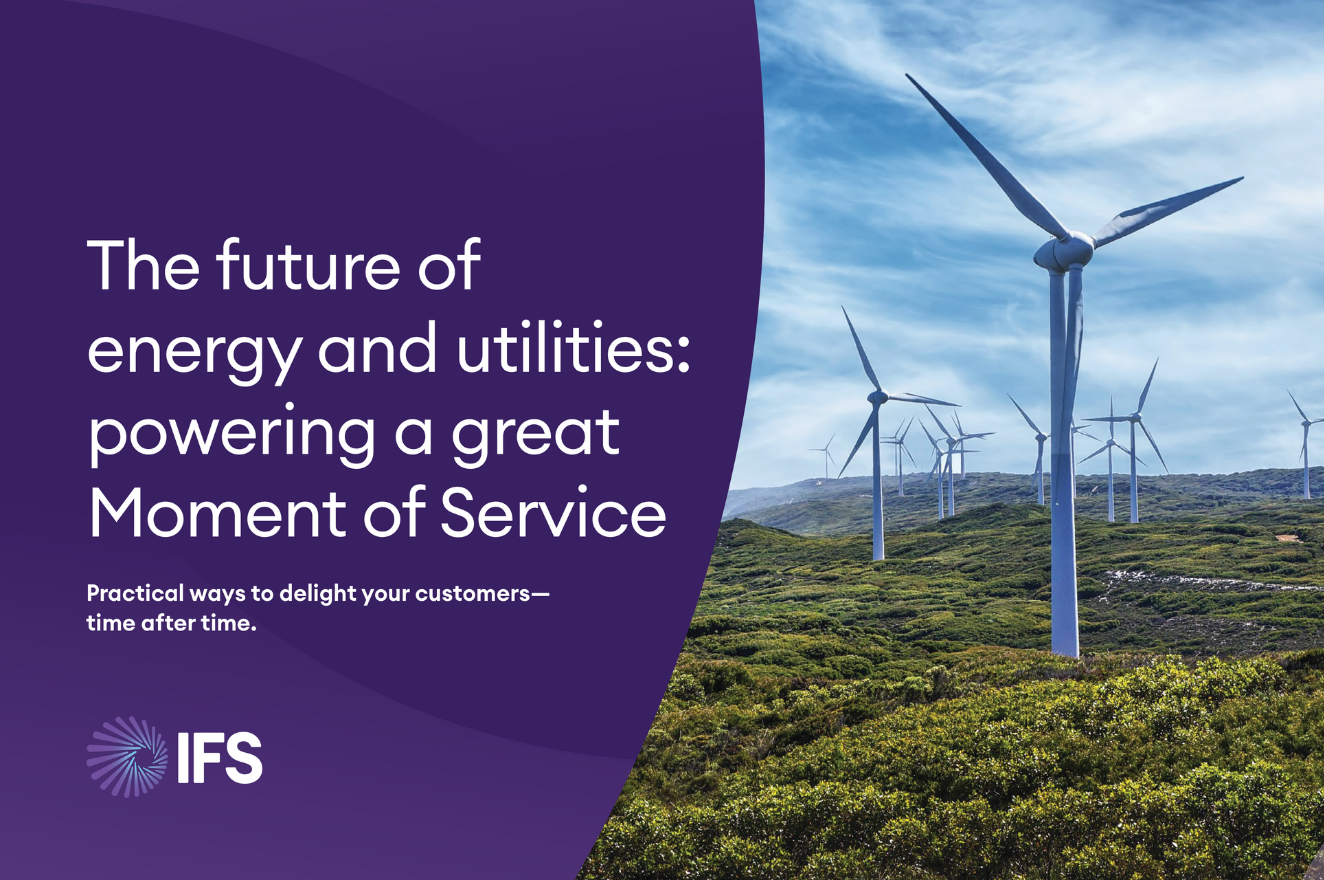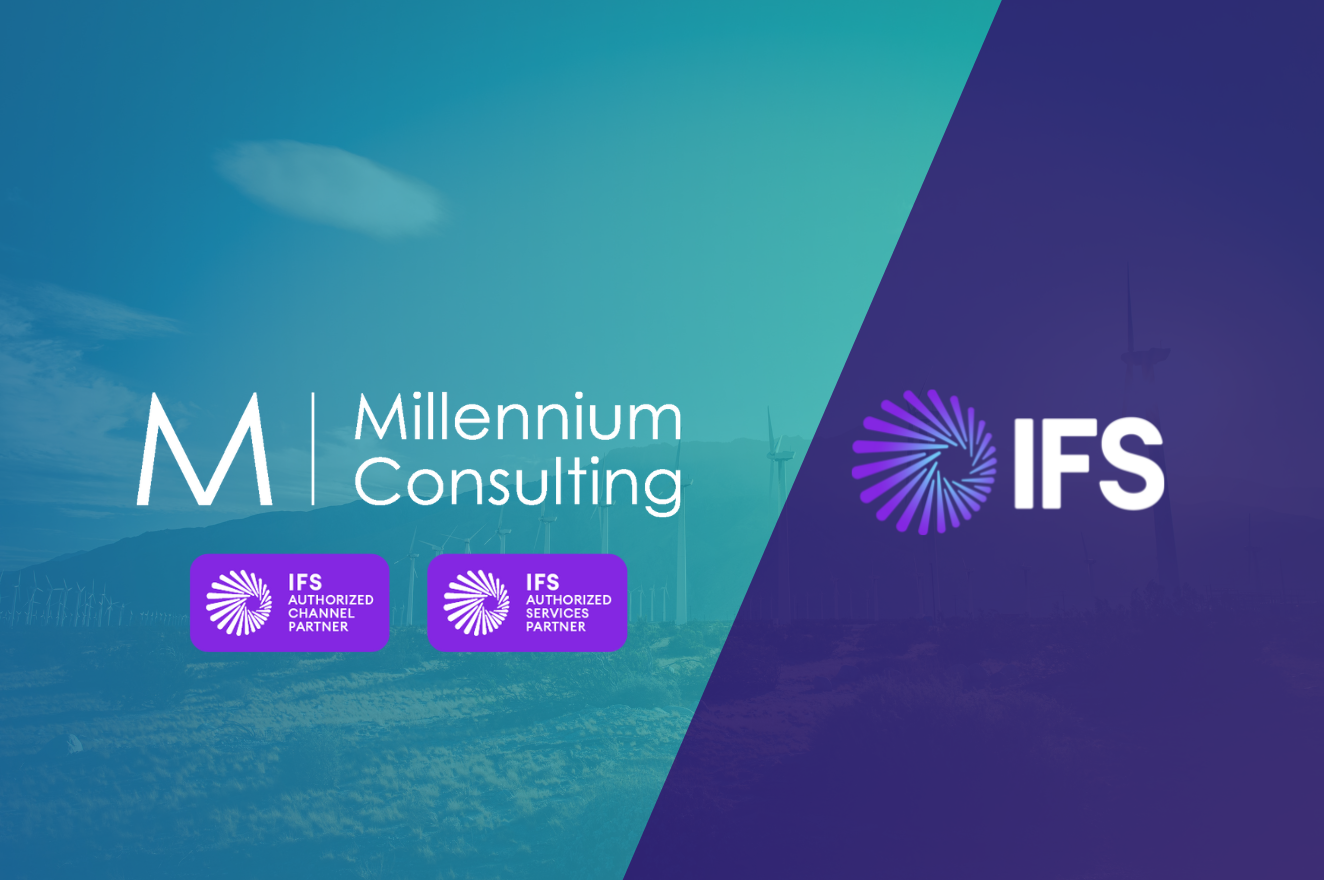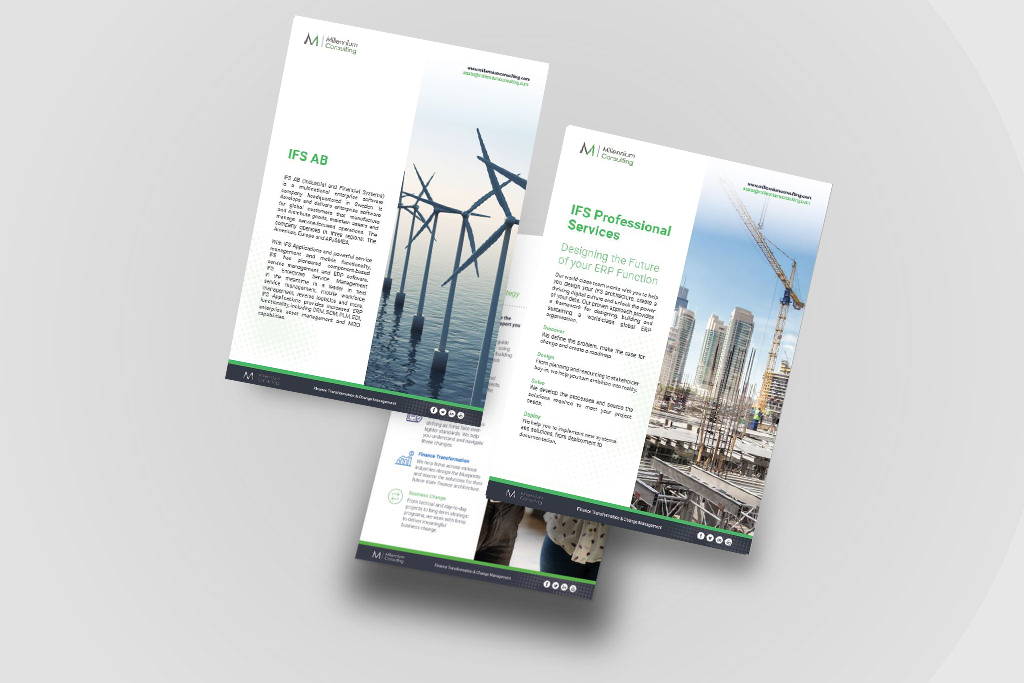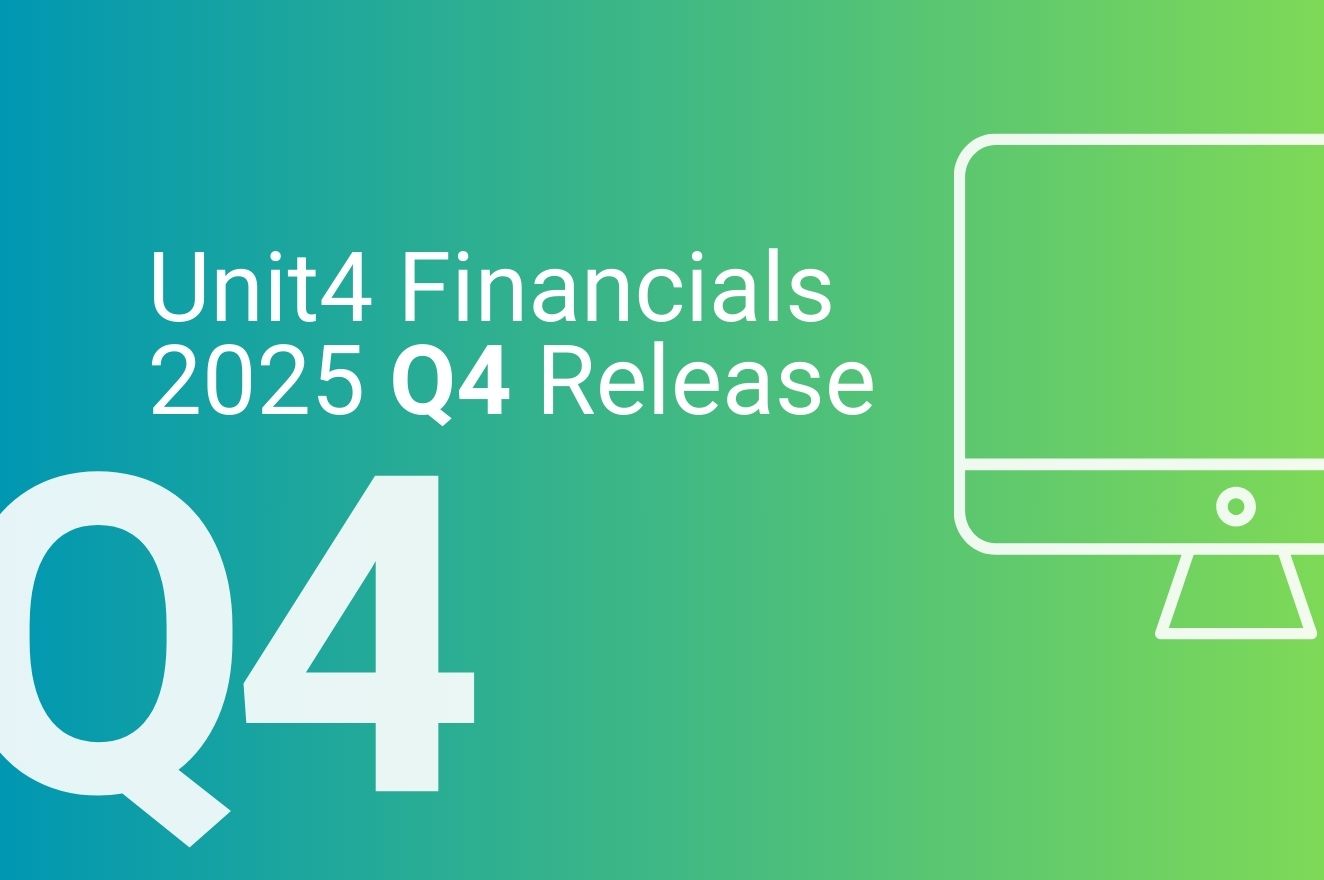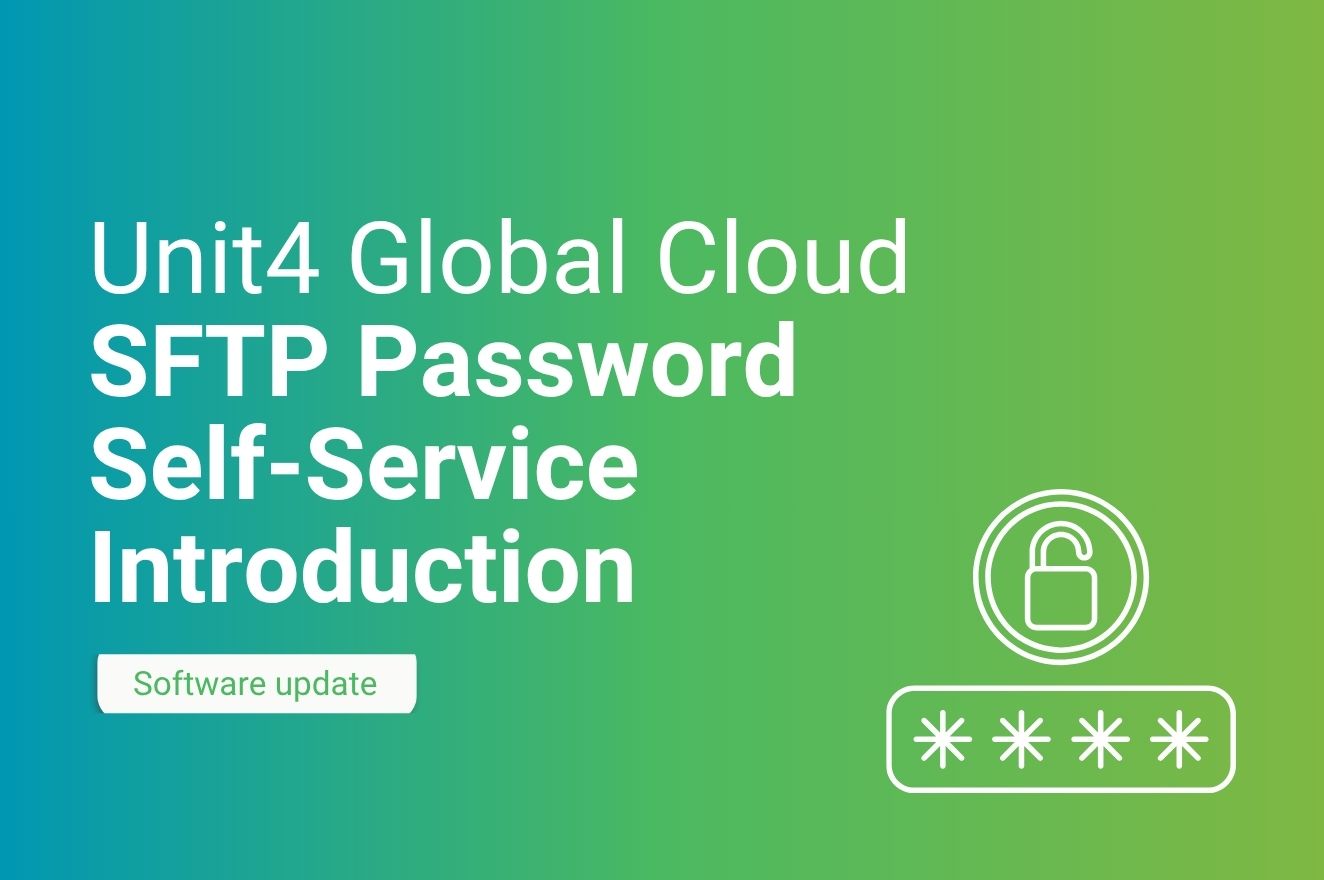3 ways to drive operational performance in renewable energy
Infographic
3 ways to drive operational performance in renewable energy
Explore this IFS infographic for three proven ways to improve operational performance in renewable energy and address common challenges.
Torresol Energy
Case Study
Concentrated solar power leader supports ongoing development with IFS
As a new, well-capitalized venture, Torresol Energy had a unique opportunity. It had no installed base of technologies or applications. With a “clean sheet” in hand, it could choose the industrial software applications that best suited its diverse operations. Required functionality included that normally associated with engineering, procurement and construction (EPC) companies, as well as that needed by plant owner-operators. Torresol Energy chose IFS Applications because it is a single, integrated system that has relevance throughout a global asset’s lifecycle—from design and development through operations and maintenance. Torresol Energy is using IFS Applications components for financials, project management, document management, asset management and supply chain.
EDF Renewables UK chooses IFS Cloud to power ambitious growth plans
EDF Renewables UK chooses IFS Cloud to power ambitious growth plans
London, UK, March 3, 2022 – IFS, the global cloud enterprise software company, today announced that EDF Renewables UK and Ireland, the leading renewable energy company, has chosen the IFS Cloud™ platform to deliver Enterprise Asset Management (EAM) to support their ambitious growth plans.
EDF Renewables UK and Ireland is a joint venture between EDF Renewables Group (EDF’s global renewable business) and EDF Energy (EDF’s UK generation business) and specialises in wind, solar and battery technology. To support their plans to increase total green energy output produced by their onshore and offshore operations, EDF Renewables UK launched the project in 2021.
During the engagement with IFS, the teams on both sides developed mutual trust and a joint vision of the optimal way to achieve the project’s goals and objectives. EDF Renewables UK and Ireland chose IFS Cloud due to its clear operational and commercial advantages. IFS provides a future-proof solution built around a concept of composable enterprise, which gives EDF Renewables UK and Ireland the operational flexibility and business agility that is critical for innovative businesses with a high growth rate.
IFS will power the company’s Enterprise Asset Management, including Operation & Maintenance, Work Order Management, Contract Management and Mobile Workforce Management – a key aspect for the energy company that puts their employees at the heart of their business. As IFS Cloud is a single platform with a single data model supported by key value drivers such as Asset Performance Management, Internet of Things (IoT), mobile work execution and live dashboards and KPIs, the company will be able to provide end-to-end visibility across multiple organisational structures and business units. IFS Cloud will be deployed to 380 full users, with 90 mobile technicians.
“We are proud to be able to power EDF Renewables UK and Ireland in supporting a vision for the growth of clean energy,” says Alan Laing, Managing Director UK&I, at IFS. “IFS Cloud was designed to offer companies with a high growth rate an uncomplicated path towards becoming more data-driven, improve innovation, and, ultimately, deliver a better Moment of Service™ to their customers. We couldn’t be more excited to partner with EDF Renewables UK and Ireland on this mission.”
Piero Maggio, Director of Asset Operations EDF Renewables UK & Ireland, also expressed his excitement to be partnering with IFS.
“Delivering IFS Cloud forms a key part of our future growth strategy. The new platform will allow us to scale our business more efficiently and consistently, whilst also capturing the richer management information needed to drive continuous improvement and inform key decision-making. Using IFS Cloud will enable us to optimise the quality and utilisation of our assets, as well as create shareholder value through improved information flows. I couldn’t be more pleased to be working with IFS.”
About IFS
IFS develops and delivers cloud enterprise software for companies around the world who manufacture and distribute goods, build and maintain assets, and manage service-focused operations. Within our single platform, our industry specific products are innately connected to a single data model and use embedded digital innovation so that our customers can be their best when it really matters to their customers—at the Moment of Service™. The industry expertise of our people and of our growing ecosystem, together with a commitment to deliver value at every single step, has made IFS a recognized leader and the most recommended supplier in our sector. Our team of 4,500 employees every day live our values of agility, trustworthiness and collaboration in how we support our 10,000+ customers.
Discover more
As a premier IFS Managed Service Provider, Millennium Consulting is ideally placed to support companies across the renewables sector. Please get in touch to discover what’s possible.
IFS enterprise software: the ideal choice for Renewable Energy companies

The renewable energy industry continues growing at an unprecedented pace, with companies facing ever greater demand to deliver sustainable solutions whilst at the same time generate profit.
From wind and solar to hydropower and emerging clean technologies, businesses in this sector have to navigate complex regulatory environments, manage large portfolios of assets and ensure optimal service delivery.
Selecting an enterprise software platform that can support the wide ranging needs of renewable energy companies is a challenge however IFS software is a good choice for many reasons.
Renewable energy companies typically operate large numbers of physical assets such as solar farms, wind turbines, hydro plants and storage facilities. IFS provides powerful Enterprise Asset Management (EAM) tools that enable organisations to monitor equipment health, schedule predictive maintenance and maximise asset lifespan. A reduction in downtime and performance optimisation enables renewable energy companies to achieve higher energy output and ROI.
Renewable energy projects require significant capital investment, with multiple stakeholders and strict timelines. IFS Project Management tools can provide end-to-end visibility, from planning and resource allocation through to execution and reporting which enable renewable firms to deliver projects on time and within budget, while meeting sustainability goals.
Wind and solar farms often operate in remote difficult-to-access locations and IFS Field Service Management (FSM) ensures that maintenance crews are efficiently dispatched with the right skills, tools and necessary spare parts. Features such as mobile access and real-time data sharing improve first-time fix rates, reducing cost and enhancing safety.
Renewable energy companies rely on data from IoT sensors, SCADA systems and environmental monitoring tools and IFS integrates seamlessly with these data sources, offering advanced analytics and reporting capabilities. Decision-makers can obtain actionable insights into performance, sustainability metrics and financial health which empowers better strategic decision making.
IFS software is designed to comply with industry regulations, health and safety standards and environmental reporting requirements. By centralising compliance processes, renewable companies can reduce risk while demonstrating transparency and commitment to sustainability.
As renewable energy companies expand into new regions and technologies, they need systems that can scale with them. IFS’s flexible, cloud-enabled architecture supports global operations, multiple business models and evolving regulatory landscapes. This future-proof approach ensures companies remain agile in a rapidly changing industry.
In summary, IFS software is the go-to platform for renewable energy organisations as it can empower renewable energy companies to manage assets, optimise service delivery, streamline projects and ensure compliance while supporting growth and sustainability. With a proven track record across energy and utilities, IFS stands out as a powerful enabler of organisations driving the transition from fossil fuels to clean energy.
For further information about the benefits IFS software can provide renewable energy companies speak to the Millennium Energy team.
Published September 2025
IFS Cloud Reaches New Heights with Microsoft
IFS Cloud Reaches New Heights with Microsoft
IFS Cloud has achieved both the Azure Software Designation and Microsoft Industry AI Certifications across all 11 industries—believed to be the first Microsoft partner to reach this milestone.
This achievement enhances IFS’s presence on the Microsoft Marketplace, reinforces trust in its IFS.ai capabilities, and enables closer alignment with Microsoft across go-to-market strategies, co-sell initiatives, and industry-specific innovation.
A significant advancement—driven by collaboration, technical excellence, and a shared commitment to innovation.
To explore how IFS solutions can support your business, please contact Millennium Consulting for more information or to discuss your requirements.
Published July 2025
UK’s clean energy milestone
One trillion kWh - and counting… laying the foundations for the UK’s next clean energy milestone
Published November 2023
2023 has seen the UK hit a renewables generation record, with one trillion kilowatt-hours (kWh) of electricity generated from renewable energy sources.
As the energy sector looks towards its next big milestones, technologies in areas such as Operation & Maintenance (O&M) and Enterprise Asset Management (EAM) will have a key role to play.
Records in renewables continue to be broken…
Earlier this year, the UK passed one trillion kilowatt hours of energy generated from renewables.
This milestone has been more than five decades in the making. National Grid’s analysis of this dates back to 1970, when renewables represented 1.9% of total generation, with hydro as the main source at the time. Offshore and onshore wind and solar entered the energy mix in 2010.
Industry data shows that this latest milestone is just one of a number of key moments for renewables over the last couple of years:
- In 2020, renewables outstripped fossil fuels for electricity generation over the course of that year for the first time in UK history.
- In 2022, electricity generation from renewable technologies increased to 5% from 39.6% a year earlier, beating the previous record high of 2020.
- In February, May, October and December of 2022, zero-carbon power accounted for over 50% of Britain’s electricity mix. In 2010, it was less than 20%.
- Wind generation in 2022 hit a record high share of 26.8% of total electricity generation.
Next steps - and the challenges that must be addressed
The UK’s first trillion kilowatt hours of electricity took more than fifty years to generate. However, providing that the latest projections stay on track, the second trillion will take just five years. The government’s wider aim is to generate at least 70% of the country’s energy from renewables by 2030.
But of course, none of this will happen organically. For ambitious targets to be met – and for green power generation records to continue to be toppled – it’s going to demand further significant action on the part of all stakeholders.
For producers across the electricity sector, the emphasis needs to be on system optimisation. This includes deploying the right technologies to better manage supply chain pressures and minimise costs. Areas of special focus include the following:

Meeting the scale-up challenge
Policymakers refer to the Balanced Net-Zero (BNZ) Pathway: i.e. a rapid switch from fossil fuels coupled with a lower overall energy demand, with the central aim of achieving net-zero emissions by 2050.
For this to happen, new installations will need to be added to the mix, and elements within the existing renewables value chain will need to scale up production significantly. As a couple of illustrations, McKinsey highlights that for the UK’s BNZ scenario to come into fruition, offshore wind will need to be delivered at 3.0 GW of capacity each year (twice the historic rate). Likewise, solar installations will need to deliver a 30-fold increase in output, to 4.7 GW per-year.
For power generation companies to get the most out of existing assets, certain capabilities are a must. This includes the ability to track real-time asset performance, and to identify minor problems before they translate into downtime.
Designed to meet the needs of the power generation sector, IFS Enterprise Asset Management (EAM) software delivers precisely what enterprises need to maximise production, and make better-informed decisions about how and when assets should be replaced, refurbished or renewed. The aim here is a clear one: extracting maximum value and capacity from your entire asset stack, to help ensure that targets are met.

Tackling supply chain and labour issues
As with all other industries, it is impossible for the electricity generation sector to avoid the knock-on effects of supply chain disruption. Some of the key recent challenges highlighted by Deloitte include limited availability of raw materials coupled with longer lead time for components, supplier-driven cyber risks, and a global shortage of chipsets for components such as solar panels and wind turbines.
The shortage of skilled workers is a further factor that could jeopardise the chances of transition targets staying on track. PwC analysis suggests that in the UK alone, a fresh pipeline of approximately 200,000 people will need training for green energy jobs between now and 2030.
Shortfalls can be addressed in part by reskilling and upskilling workers who will be displaced from areas such as oil & gas, while also widening and diversifying the recruitment pool.
At the same time, businesses will need to think smart when it comes to making the most out of existing workforces. This should include the adoption of technologies such as intelligent workforce optimisation, which makes it easier to balance competing workforce priorities and instigate more efficient task scheduling. Likewise, advanced workforce planning and demand forecasting software should make it easier for businesses to predict when and where workforce gaps are likely to arise – and to plan accordingly.

Futureproofing your technology stack
Visibility across all power generation assets, the ability to drill into operational data and identify areas for improvement, the ability to drive efficiency and bring down costs: these are precisely the type of capabilities power generation companies will need to develop if future targets are going to be met.
A leader in the fields of ERP (Enterprise Resource Planning), EAM (Enterprise Asset Management) and Service Management, IFS is the go-to solution for companies across the energy sector. As a premier IFS Managed Service Provider, Millennium Consulting is ideally placed to help you build the capabilities required to keep targets on track. For further information, please contact Philip Keet, IFS Director.
UK’s first grid-linked solar farm
The UK’s first grid-linked solar farm: Thinking big to tackle renewable bottlenecks…
The arrival earlier this year of the UK’s first grid-connected solar farm was an important milestone in the journey towards net-zero. Phil Keet of Millennium Consulting considers how fresh thinking, updates to network infrastructure and a smarter approach to asset management all have a part to play in ensuring ambitions stay on track.
September 2023
Renewables and the issue of connectivity
Two years ago, the government committed to decarbonising the UK power system by 2035. As the Department for Business, Energy & Industrial Strategy put it, “To ensure this ambition becomes a reality, the government will double down on efforts to deploy a new generation of home-grown technologies – from offshore wind, hydrogen and solar, to nuclear, onshore wind and carbon capture & storage”.
As ever, the devil is in the detail. Policymakers tend to be very keen to talk up their support for individual projects – e.g. those linked to solar and offshore wind – as well as disruptive technologies (advanced modular reactors and carbon capture being just two examples).
However, one important fact is often glossed over. Namely; no matter what disruptive technologies reach fruition in the next twelve years, no matter how many allocation auctions are undertaken and renewables projects get underway, the 2035 carbonisation goal is not going to be met unless renewables can be incorporated successfully into the existing National Grid.
The significance of the Larks Green solar project
The National Grid was designed a century ago at a time when coal was king. The idea is a simple one: you establish your baseline and ramp up or scale down output from your power plants as demand shifts. When similarly easily dispatchable power sources came along (i.e. oil, nuclear and gas), the same principle applied – and those sources were incorporated into the system pretty seamlessly.
Renewables – particularly wind and solar – are, of course, different. The rate of power generation tends to be both intermittent and inconsistent. The grid was meant to fix the problem of meeting demand – i.e. ensuring electricity was transmitted effectively and efficiently to where it was needed. It was never designed to handle a system in which fluctuations and intermittency in supply were the norm.
Owned and operated by Cero Generation and Enso Energy, the new 50 MW Larks Green solar farm near Bristol offers a possible template for tackling some of these issues in the near and medium term.
One of the key characteristics of this new facility is scale. The plant comprises 152,400 solar modules installed in a 200-acre plant close to the National Grid’s 400kV Iron Acton substation. According to the National Grid’s press release, “It will generate over 73,000MWh annually – enough to power the equivalent of over 17,300 homes – and will displace 20,500 tons of CO2 each year compared to traditional energy production.
Secondly, the solar farm is co-located with a battery energy storage system (BESS), meaning that surplus energy generated in conditions that enable peak power generation can be accumulated. This therefore helps to directly mitigate the issue of intermittent and fluctuating generation.
Thirdly – and for this first time for a UK solar project – Larks Green provides a direct connection to the National Grid transmission network. Up until its arrival, all utility-scale solar plants were only capable of being connected to lower voltage local distribution grids. This new development means that the output of a solar plant is no longer confined to a particular area: energy can travel further, meaning that solar plants can be situated in those locations where output will be optimised – but the whole country can reap the direct benefits.
Further work to be done
Large-scale power generation projects twinned with battery storage assets are likely to become an increasingly popular model in the renewable energy market.
However, they are not an instant and permanent fix to all the issues linked to the country’s legacy National Grid infrastructure. According to the BBC’s calculations, there are currently more than £200bn worth of renewable energy projects sitting in the connections queue: the longest queue of any country in Europe.
What this means for companies
For parties involved in renewables projects, the risks associated with grid-related deployment delays need to be considered carefully in the planning process.
This issue also highlights one of the main differences between renewables projects and legacy infrastructure. Grid operators and power producers alike are going to have to come to terms with a proliferation of multiple dispersed projects. The greater the number of individual assets in play, the more challenging it becomes for grid operators to maintain strategic oversight – and for asset owners to monitor and maintain those assets effectively.
So far as reducing deployment bottlenecks is concerned, The National Grid’s ‘Pathway to 2030’ investment package is a step in the right direction, although stakeholders across the industry will obviously be eager to see further action taken at a governmental level.
In the meantime however, producers should act now to ensure that as their asset portfolio is diversified, they have the enterprise asset management (EAM) capabilities in place to ensure that assets are monitored, maintained and used effectively throughout their lifecycle.
Faced with new challenges linked to, for example, demand forecasting, load balancing and the need to minimise costs, sector-specific expertise is a must. A leader in the fields of ERP (Enterprise Resource Planning), EAM (Enterprise Asset Management) and Service Management, IFS is the go-to solution for companies across the energy sector. Find out more here.
As a premier IFS Managed Service Provider, Millennium Consulting is ideally placed to help you build the technological capabilities required for a successful renewables transition. To discover how IFS can help ensure the success of your renewables projects, speak to us today.
Improve efficiency across your Oil & Gas Operations with IFS Solutions
White paper
June 2023
Improve Efficiency across your Oil & Gas Operations with IFS Solutions
Whether you’re in engineering, contracting, procurement, installation, or any other field related to oil & gas, IFS offers a fully integrated software solution that delivers all the features you’ll ever need to work more efficiently.
Discover the latest IFS news
Realising successful Oil & Gas Digital transformation
June 2023
Realising successful Oil & Gas Digital Transformation: What makes IFS the best fit?
With a complex mix of services to manage and challenges to meet, oil & gas decision makers cannot afford to take risks with business-critical software. Sector-specific expertise is a must…
Decision makers approach software procurement with certain outcomes in mind. Typically, these include a desire to improve operational efficiency, boost productivity and gain more effective control over project management. The end goals are improved margins and a more resilient business.
To reach those desired outcomes, a complex operating environment calls for careful choice of technology. This is particularly true for finance leaders in the oil & gas sector who are grappling with a volatile market, rising operating costs, a scattered portfolio of assets to manage and increased regulatory oversight, including pressure to reconfigure the entire business model in line with ESG frameworks.
Challenging conditions call for proven, sector-specific technological solutions. This is where IFS comes in: a global leader in enterprise software, with solutions that cover Enterprise Resource Planning (ERP), Field Service Management (FSM), Asset Management and more.
To date, IFS applications have been deployed successfully in more than 400 projects by oil & gas companies. Here’s a closer look at the reasons why IFS solutions are the ideal fit for the exacting needs of this particular sector.
Ensuring continuity while driving efficiency
The challenge
Finance leaders and operational managers in the oil & gas sector tend to have complex and often competing priorities to juggle. These include the following:
- Continuity of supply. While security of supply is not a new concern, the war in Ukraine has pushed it to the top of the political agenda. In the current climate, an unplanned major outage is as much a political issue as an operational one.
- Cost reduction. In areas such as asset maintenance, this includes optimising inventories of spares and equipment, along with reduction of procurement and shipping costs.
- Alongside any initiatives in play to improve the efficiency of offshore operations, the highest standards for safety and environmental management need to be maintained.
The solution
The IFS cloud-based ERP solution comes with precisely the capabilities planners and operational managers need to meet the challenges associated with the management of offshore assets.
For instance, in the context of maintenance, robust ‘spares & repairs’ inventory functionality makes it possible to plan with accuracy for long lead times in custom fabrication, as well as transport order management.
More accurate resource planning provides greater scope for optimising inventories, lower levels of redundancy, healthier cash flow – as well as the possibility of greater leeway for negotiating lower equipment costs.
On the operational side, it can also mean reduced unplanned downtime and fewer delays due to equipment unavailability.
Eliminating silos
The challenge
Effective planning requires sight of the whole picture. This, however, is often easier said than done: particularly for an enterprise that comprises multiple assets in dispersed locations, and with production flows that span numerous drilling contractors, vessel owners and a multitude of other supply chain partnerships.
The solution
IFS enables you to break down the data silos that can emerge across scattered operational sites. In their place, you can have one version of the truth, and one set of numbers for the entire organisation.
For finance leaders, the solution can help deliver total real time visibility of the global business, including finance, project and asset management, as well as insights on performance across the entire on and off-shore supply chain.
Assets that are ‘in the dark’
The challenge
Collating transactional information from across the enterprise can be a challenge for any finance department. This is especially true for the case of the oil & gas sector – particularly when it comes to the reliable transmission of key financial information from isolated offshore units to onshore locations.
The solution
With experience of meeting the needs of the energy sector since the software’s inception, IFS is well aware of the challenges surrounding the management of scattered assets. Customers get the benefit of IFS Instant Replication as standard. This uses satellite technology to ensure that offshore operations always have system support – even in areas where communication links are poor.
On the other side, IFS Instant Replication also means that your onshore finance hub can always have access to current information on the status of each offshore asset: everything from serviceability and maintenance inventory on hand, through to data on that asset’s performance and contribution to cost and revenue.
Cross-geography initiatives
The challenge
Collating transactional information from across the enterprise can be a challenge for any finance department. This is especially true for the case of the oil & gas sector – particularly when it comes to the reliable transmission of key financial information from isolated offshore units to onshore locations.
The solution
With experience of meeting the needs of the energy sector since the software’s inception, IFS is well aware of the challenges surrounding the management of scattered assets. Customers get the benefit of IFS Instant Replication as standard. This uses satellite technology to ensure that offshore operations always have system support – even in areas where communication links are poor.
On the other side, IFS Instant Replication also means that your onshore finance hub can always have access to current information on the status of each offshore asset: everything from serviceability and maintenance inventory on hand, through to data on that asset’s performance and contribution to cost and revenue.
Project management
The challenge
Especially when under intense pressure to lower overheads, agility is key when it comes to project management. When a viable new opportunity has been identified, rarely is it a case of being able to follow a cookie-cutter workflow. Success depends on the analysis of multiple unique dependencies, along with the ability to track cost, risk and timings in real-time.
Furthermore, problems can arise when organisations have discrete technologies in play for project management and asset management – particularly when it comes to questions over which projects to prioritise in the allocation of limited enterprise resources.
The solution
IFS offers organisations a truly integrated view of performance, with tools that include both project management and asset management via a single platform. This provides for greater visibility, more efficient risk management, and helps ensure resources are allocated and reallocated to deliver the greatest possible value.
Discover more
As a premier IFS Managed Service Provider, Millennium Consulting is ideally placed to support companies across the oil & gas sector as they seek to achieve maximum return on their tech investment.
Please get in touch to discover what’s possible through the IFS platform.
Managing the Renewables Transition
June 2023
Managing the Renewables Transition
How IFS Cloud helps deliver energy sector diversification
For the power generation industry, the switch to renewables carries implications that go far beyond routine operations. Entire business models will need to change, embracing new sources while also meeting the expectations of customers who demand greater control over how their energy is produced and supplied.
Developed from decades of working within the energy and utilities sectors, IFS Cloud delivers precisely the capabilities needed to manage diversification into renewables. Take a look at this white paper as we explore how cloud technology is helping companies within this sector deliver a successful transition.
Unit4 Financials by Coda 2025Q4
December 15, 2025
SMTP Modern Authentication Migration
December 3, 2025
Unit4 Release Schedules 2026
November 17, 2025
Getting the Most from Coda: The Unit4 Financials Task App
November 10, 2025
3 ways to drive operational performance in renewable energy
October 6, 2025
Unit4 Global Cloud – SFTP Password Self‑Service Introduction
October 6, 2025
Torresol Energy
October 3, 2025


